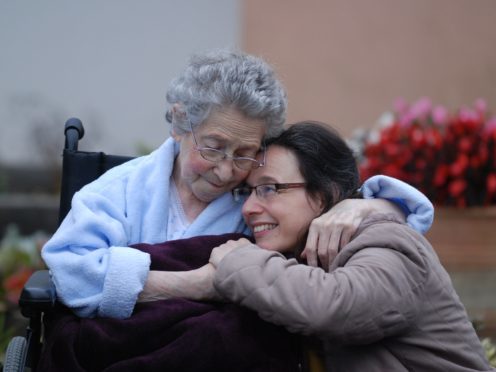Medical researchers are hoping to bust some of the myths and mystery surrounding clinical trials in an effort to get more much-needed volunteers.
With 85% of people saying they want to help the NHS find better treatments, but only 14% having ever taken part in a clinical trial, there is a gap which urgently needs to be filled “if we want to continue offering our patients world-leading healthcare,” said Simon Denergi, head of the NHS research arm.
Mr Denergi, the National Institute for Health Research (NIHR) national director for patients, carers and the public, stressed that research remains “one of our best chances to develop the care and treatment we receive in the future”.
Cancer, Alzheimer’s or dementia and genetic diseases were named by adults as the illnesses which should be the NHS’s top research goals in the next 30 years.
NIHR data of 2,000 adults shows that 23% wrongly think clinical trials are only for people who are ill, 58% think children cannot take part in trials, 38% think all trials involve testing a new drug and 66% think people have to be invited to take part.

The figures also showed that 27% of people thought trials only took place in hospitals, 40% do not realise that most hospitals in England stage trials and that 40% do not know that patients and the public can help to design trials.
In addition, 56% of adults said fears about treatment safety stopped them volunteering but 87% of patients who took part in research had a positive experience, according to the NIHR.
Asked what should be the NHS’s top research priorities for the next 30 years, 68% said cancer, 58% opted for Alzheimer’s or dementia and 32 said genetic diseases such as cystic fibrosis.
Mohsan Akhtar, 46, of Watford, had his leg amputated above the knee when he was 29 after contracting the rare bacterial infection Necrotising Fasciitis.
He joined a clinical trial which developed a prosthetic limb that attached directly to his skeleton and has changed his life.
The father-of-three, who runs family businesses including shops and a restaurant with his brothers, said: “I can do more with the kids and I’ve been able to get out more – I no longer have to think about how far I can walk.”
He urged potential volunteers to do their research and speak to people beforehand, saying: “If you are confident in your mind then just go for it – you’ll be helping so many other people.”
Georgina Shomroni, 55, who works at Oxford’s Bodleian Libraries, joined a long-term study which aims to identify early signs of dementia after seeing the “distressing” impact the condition has had on her family.
The trial, involves checks on a volunteer’s state of health and monitoring by repeating the tests every two years to see how things have changed.
Blood tests, being weighed, blood pressure readings, an ECG, urine tests and saliva samples are part of the assessments and she found the only discomfort was in having a spinal tap to collect cerebrospinal fluid.

Cathy Perkins, 63, a professional viola player from Manchester, was given months to live after a melanoma on her right finger spread to her lungs.
Four years later, she has defied doctors’ expectations and has taken part in a clinical trial involving breakthrough immunotherapy treatment at the NIHR Clinical Research Facility at The Christie in Manchester.
She said there were “a few side effects but most of those are sorted with a pill” and added that “when there is no conventional treatment, I would encourage anyone to consider taking part in a clinical trial very, very seriously.”
